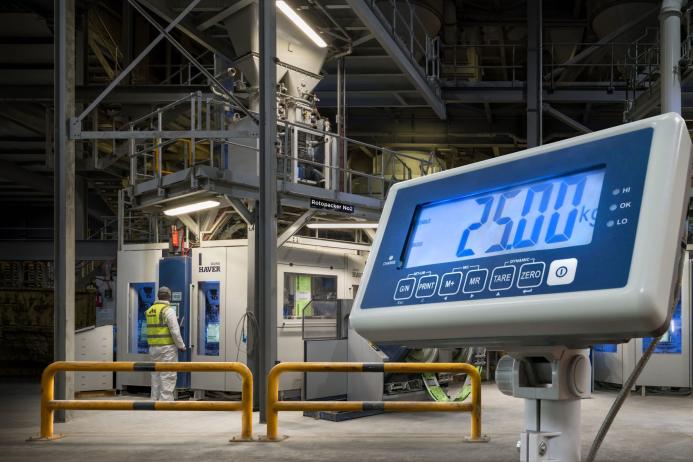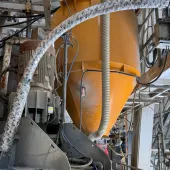Mannok Cement resolve plastic bag weight issue
Application of Lean principles set to achieve up to €350,000 savings per year for Mannok Cement
APPLYING Lean principles has helped Mannok Cement address a plastic bag weight issue in the bagging plant, resulting in savings of up to €350,000 per year.
The initial investigation focused on the problem of open bags and sought to determine its cause. It was discovered that one reason for this issue was that the bags were being overfilled with cement, prompting the team at Mannok Cement to investigate further to understand why this was happening.
Overfilling not only caused some bags to open, leading to their rejection, but also created problems during transit. Additionally, with 80% of the bags being overweight, there was also the obvious high cost to the company.
The team, led by Catriona McGorman, Mannok’s continuous improvement practitioner, aimed to reduce the number of overweight bags produced at the plant.
Mannok sell more than 8 million 25kg bags of cement each year. The legal tolerance for underweight bags is 1%, meaning that bags must weigh no less than 24.75kg. The team’s goal was for 90% of the bags to fall within the 1% tolerance range, with the maximum weight per bag being no more than 25.25 kg.
The bagging plant is equipped with a check weigher which rejects underweight bags (<24.75kg) and sends them for reworking. However, the check weigher was originally set up to select only underweight bags, allowing overweight bags to continue through the process. This led to additional problems at the sealing station, with unsealed bags having to be reworked.
Other issues caused by the weight discrepancies included decreased production owing to machine stoppages and health and safety concerns during reworking.
By educating themselves on the workings of the check weigher, the cement team adjusted the settings to display ‘Good Production’ and ‘Bad Production’.
Initially, ‘Good Production’ was set with a lower tolerance of 24.75kg (±0.25kg) and an upper tolerance of 25.5kg (±0.5kg). It was found that 83% of the bags were classified as ‘Bad Production’, falling outside the specification limits, with the vast majority being overweight.
To resolve this issue in the cement bagging process, the team applied the innovative Six Sigma methodology, which incorporates data-driven, statistics-based tools designed to improve process management and foster continuous improvement. This included techniques such as Failure Mode Effects Analysis, SIPOC (Supplier, Inputs, Process, Outputs, Customer), Process Mapping, Fishbone Diagrams, and A3 Problem Solving.
Through this analysis, several issues were identified and addressed. These included reconfiguring the check weigher to monitor all bags (not just underweight ones), training all staff on how to adjust weights and understand the reasons for doing so, and adding check weigher weights to the Adams Screen to improve visibility. Additionally, a preventative maintenance programme was implemented for all weighers.
After making these adjustments, the team conducted another process capability analysis and discovered a massive improvement: the percentage of out-of-specification bags dropped from 83% to 22%.
Progress has continued, with the team now approaching their target of 90% ‘Good Production’ within the 1% tolerance range (24.75kg–25.25kg). The upper tolerance has now been reduced from 25.5kg to 25.3kg with 90% of bags falling within this range.
With the weight of the bags now at recommended levels and fewer open bags needing to be reworked, the company is forecasting a substantial financial benefit of more than €350,000.
This issue, which could have gone unnoticed, was highlighted and resolved through the checks and procedures of Lean principles.
The cement team is now planning additional Lean projects, including investigating other potential causes of open bags, identifying reasons for excessive dust in the air, and addressing store and stock-control issues.










